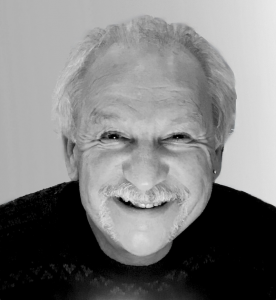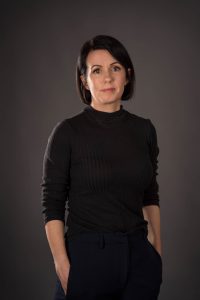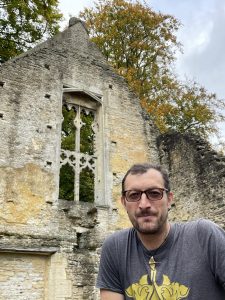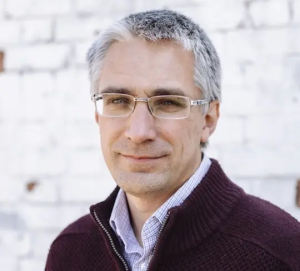 If you believe Sir Tim Berners-Lee invented the Internet, then Mel Croucher invites you to think again.
If you believe Sir Tim Berners-Lee invented the Internet, then Mel Croucher invites you to think again.
He will reveal a story of two men who met only once. One was a pacifist, the other was a Nazi. One man’s vision was to harness all the world’s data for peace, and long, long ago he built a world-wide-web to deliver exactly that. He called it The Mundaneum. The other man’s vision was to harness information to control the masses, and in 1944 he achieved that too then attempted to destroy all records of the Mundaneum. He nearly succeeded, but not quite.
Mel will take you on the pathway that led him to the evidence that the Internet was conceived in 1891 and fully functional by 1934, when it embraced telephony, radio, television, data discs, remote terminals and millions upon millions of interactive files. He will then explain how and why the Mundaneum and its creator were erased from history, along with parallels of today’s online information wars.
Bio
Mel Croucher is the acknowledged founder of the British computer games industry. He was originally an architect, but moved into the world of computerised entertainment to smuggle his music past an unsuspecting public.
Twice winner of the Game Of The Year Award, he pioneered software broadcasts via radio, geocache games, the first computer-generated movie, the first AI virtual companion and the first million-user viral marketing campaign.
He is the author of text books, computer manuals, fiction and non-fiction, and more than a thousand of his columns and investigations have appeared in print over six decades. His 2024 book Mundaneum is published by Extremis Publishing.
Standard Stuff
Talks are usually on the 4th Wednesday of every month, at 7:00 for 7:30, at The Winchester Club in Winchester. Please take a look at the FAQs for more info.
Admission is £5 which also gives you an entry in the book raffle. We take cash and major cards (cards preferred).
The event is in two parts – the talk and then a Q&A after the interval. We encourage you to support the venue by indulging in the available drinks before and during the event.
You are also welcome to join us for a drink in the bar after the event.

 We often assume we understand our own environmental impact, but recent research suggests we may be viewing waste through a kind of blindfold. This talk explores how that blindfold forms, what happens when it is lifted, and how clearer messages can support more sustainable choices.
We often assume we understand our own environmental impact, but recent research suggests we may be viewing waste through a kind of blindfold. This talk explores how that blindfold forms, what happens when it is lifted, and how clearer messages can support more sustainable choices. The Future of Personalised Healthy Ageing
The Future of Personalised Healthy Ageing “Have you been naughty or nice?
“Have you been naughty or nice? From policing to infrastructure inspection and delivery, aerial drones are increasingly present in UK airspace – mobilised in civil, commercial and recreational roles.
From policing to infrastructure inspection and delivery, aerial drones are increasingly present in UK airspace – mobilised in civil, commercial and recreational roles. We’re all members of a very strange species. But where lots of human peculiarities – from art to warfare and beyond – have analogues across the animal kingdom, we stand alone as the only religious species.
We’re all members of a very strange species. But where lots of human peculiarities – from art to warfare and beyond – have analogues across the animal kingdom, we stand alone as the only religious species. Science has transformed the quality of human life. But Philosophers have sometimes struggled to define what makes science, science.
Science has transformed the quality of human life. But Philosophers have sometimes struggled to define what makes science, science. Hearing loss is the most prevalent sensory condition, with a large genetic component. In particular, Age-Related Hearing Loss is an ever-growing issue for a steadily ageing population; about 25% of those over 65 years of age suffer from it, and this doubles for every further 10 years of life.
Hearing loss is the most prevalent sensory condition, with a large genetic component. In particular, Age-Related Hearing Loss is an ever-growing issue for a steadily ageing population; about 25% of those over 65 years of age suffer from it, and this doubles for every further 10 years of life. What geology and archæology can tell us
What geology and archæology can tell us How the basic tools of scientific scepticism should be applied in the post-truth digital era
How the basic tools of scientific scepticism should be applied in the post-truth digital era